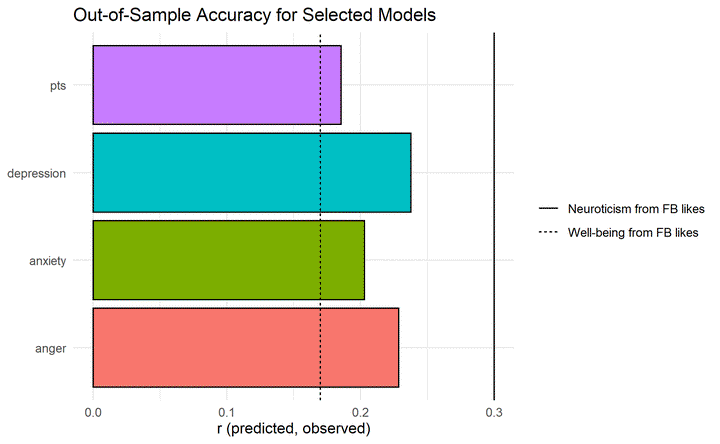Predicting Mental Health from Followed Accounts on Twitter

Abstract
The past decade has seen rapid growth in research linking stable psychological characteristics (i.e., traits) to digital records of online behavior in Online Social Networks (OSNs) like Facebook and Twitter, which has implications for basic and applied behavioral sciences. Findings indicate that a broad range of psychological characteristics can be predicted from various behavioral residue online, including language used in posts on Facebook (Park et al., 2015) and Twitter (Reece et al., 2017), and which pages a person likes on Facebook (e.g., Kosinski, Stillwell, & Graepel, 2013). The present proposal seeks to examine the extent to which the accounts a user follows on Twitter – their Twitter friends – can predict individual differences in self-reported anxiety, depression, post-traumatic stress, and anger. Studying Twitter friends offers distinct theoretical and practical advantages for researchers, including the potential for less overt impression management and better capturing passive users. By incorporating best practices in open science and machine learning, we aim to provide unbiased estimates of predictive accuracy for predicting Mental Health from Twitter friends. Our findings will have implications for theories linking psychological traits to behavior online, applications seeking to infer psychological characteristics from records of online behavior, and for informing discussions of how such applications could affect users’ privacy.